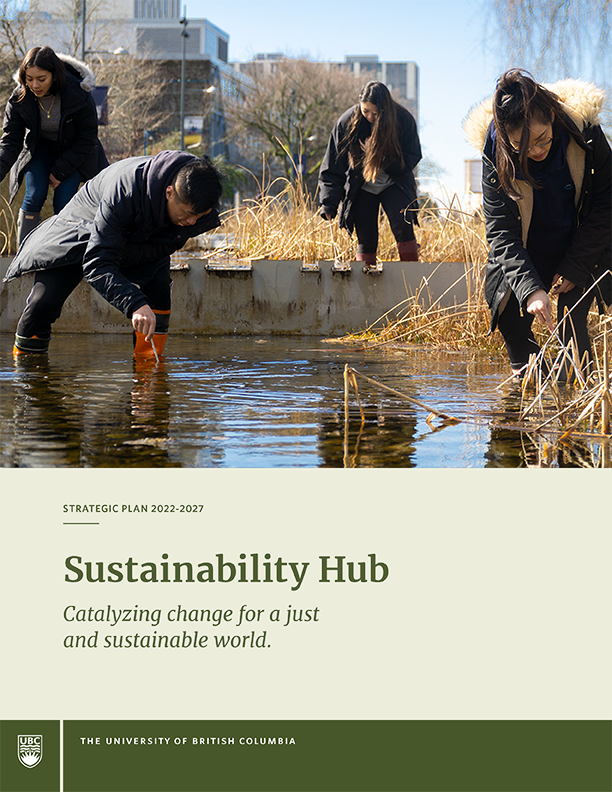The UBC Sustainability Hub, a staff unit in the Provost’s portfolio, builds on UBC's sustainability leadership record, and works to reinforce the University's goals to inspire action for a better world.
OUR MISSION
Inspiring people to act upon the planet’s most urgent challenges through UBC’s academic and operational sustainability leadership.
To realize this mission, the Sustainability Hub works to embed sustainability across all aspects of UBC’s academic endeavours, focusing on student education and faculty support.
The Sustainability Hub is focused on catalyzing change – across UBC and beyond. Our five-year strategic plan outlines how we are activating our mission.
Our approach
We offer programs: student leadership development and paid student internships; faculty interdisciplinary cohorts of Fellows, climate and wellbeing grants and other support for faculty to enhance sustainability education. We curate listings of sustainability and climate courses and sustainability degree programs. We developed the Catalyst program to recognize the sustainability work of the UBC community.
We also organize numerous collaborative opportunities to spur action and share knowledge including UBC’s annual Climate Emergency Week, the “Climate Justice” educational series, delegations to the annual COP climate treaty meeting, sustainability activities at CIRS, and speaker series UBC Reads Sustainability.
One of our key roles is to connect faculty to operational staff through the Campus as a Living Lab initiative in order to test sustainability ideas that leverage our academic and operational capabilities to respond to global sustainability problems. We manage UBC’s Campus as a Living Lab, which provides a collaborative framework for faculty, staff, students and partners to address urgent global sustainability challenges in our local campuses. Through our Urban Innovation Research initiative we expand this work to practice and policy beyond campus.
We also work closely with Campus and Community Planning, who are responsible for operational sustainability, and partner with a diverse group of departments at UBC and organizations across BC to support student, faculty and staff across both campuses.
We report on sustainability for both campuses and produce UBC’s Annual Sustainability Report, Sustainability Dashboards, and a monthly newsletter. We manage multiple websites including: UBC Sustainability, Campus as a Living Lab, and UBC Climate Emergency.
In partnership with the UBC Okanagan Provost Office, we have the role of convening, coordinating and tracking implementation of the Climate Emergency Task Force (CETF) strategic priorities and recommendations. The entire Sustainability Hub team is embedding CETF priorities into their work plans and programs.
As a hub for action, facilitating collaboration is essential. Our team – including Senior Director Linda Nowlan, and Academic Director Tara Ivanochko would love to hear your feedback and talk about new opportunities to work together. Please get in touch.
OUR VISION
A just and sustainable world.
Land Acknowledgement
The Sustainability Hub office is located at the UBC Point Grey campus situated within the traditional, ancestral, and unceded territory of the xʷməθkʷəy̓əm (Musqueam). As part of the larger UBC community, we are guests and settlers on the traditional, ancestral, and unceded territories of the xʷməθkʷəy̓əm (Musqueam), Sḵwx̱wú7mesh (Squamish), Sel̓íl̓witulh (Tsleil-Waututh) and Syilx (Okanagan) Nations.
In our pursuit of sustainability, climate action and climate justice, we understand that protecting human rights is indelibly woven into the fabric of environmental protection and sustainability. As guests and settlers on Indigenous lands, we share an important responsibility for learning with and about our host Nations and strengthening these relationships. We will continue building on existing partnerships with our host Nations through mutual respect and reciprocity.
Our work
We offer experiential programs for students and recognize their contributions to sustainability.

SUSTAINABILITY AMBASSADORS PROGRAM
A leadership experience for students interested in personal, collaborative, and community engaged learning.
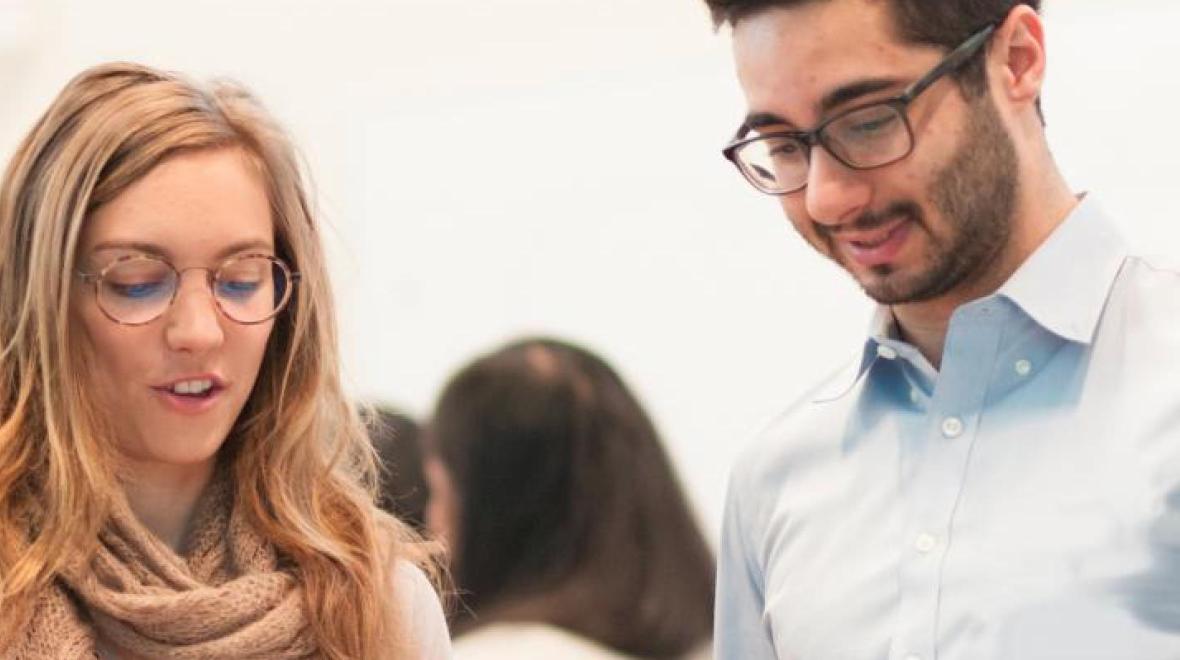
SUSTAINABILITY SCHOLARS PROGRAM
We match UBC graduate students with on- and off-campus sustainability partners to work on applied research projects that advance sustainability across the region.

Catalyst Program
A free certification program for sustainability engagement and leadership. Get recognition for volunteering and engagement efforts.
We support faculty to enhance sustainability curriculum, and students to deepen their learning.
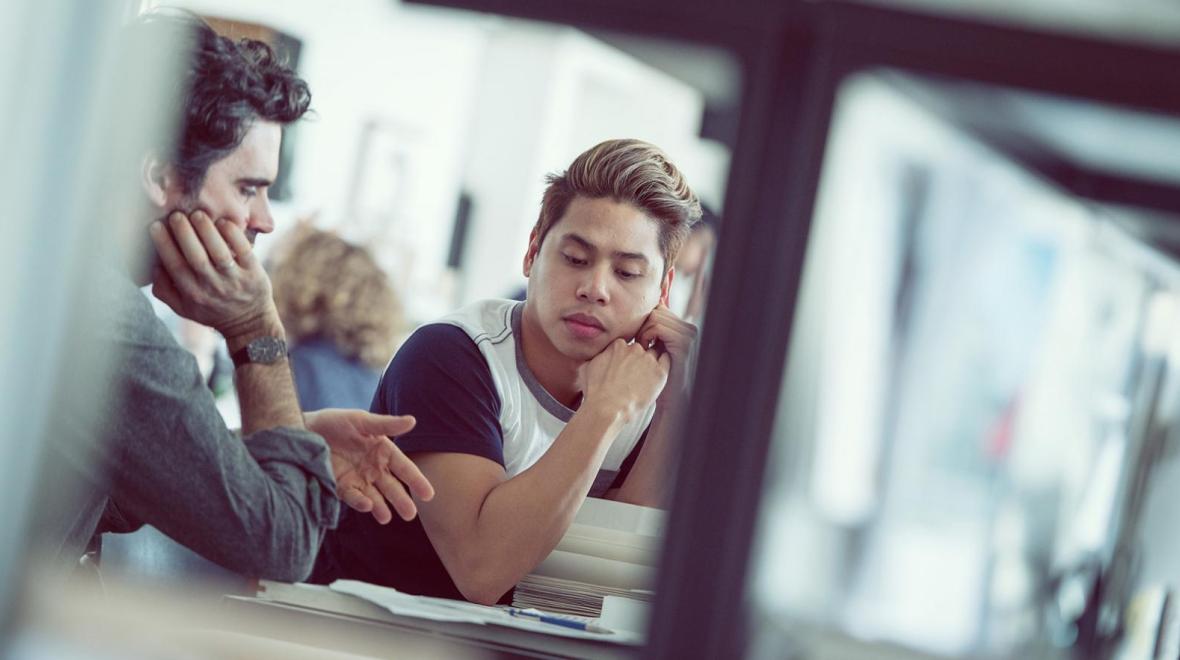
SUSTAINABILITY EDUCATION FELLOWS PROGRAM
Fellowships are awarded to full-time UBC Vancouver faculty members who are leading the design of new sustainability courses and programs.
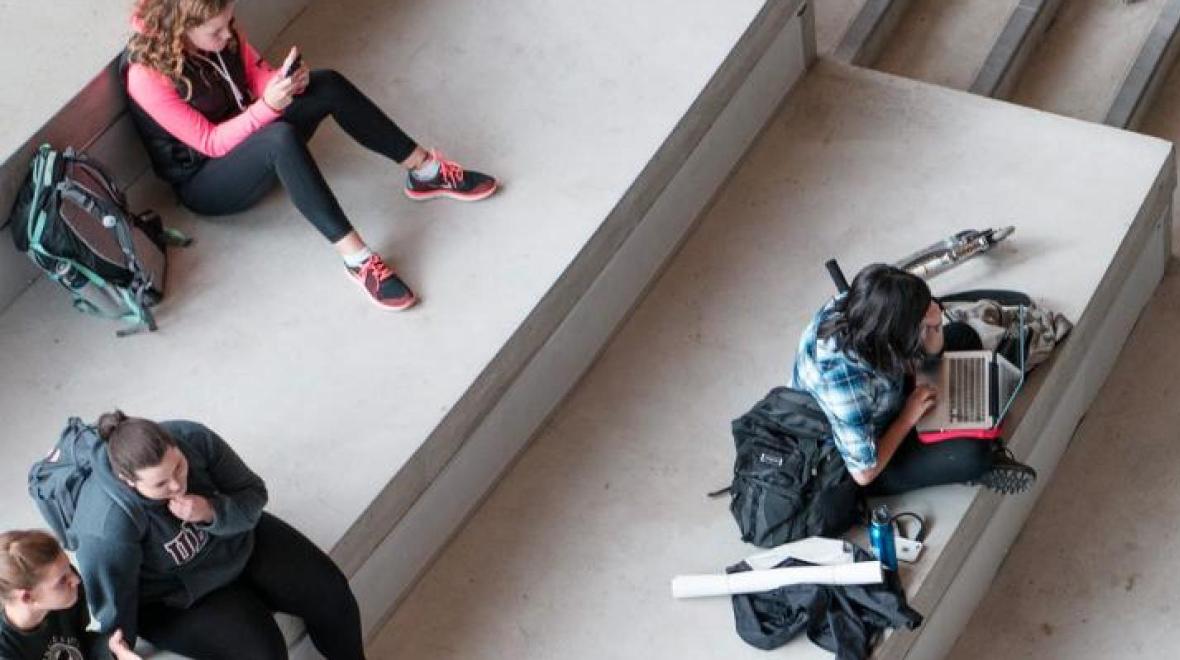
Find a Course Tool
Use our course finder tool to search and filter for sustainability learning opportunities at UBC.
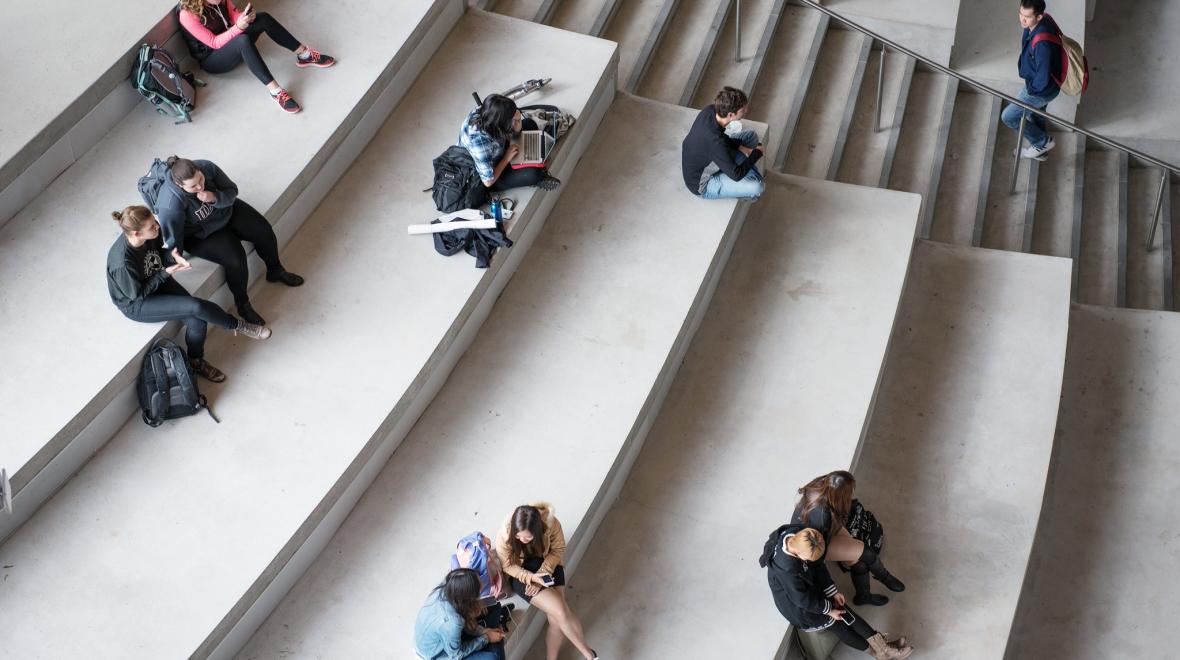
DEGREES AND CERTIFICATE PROGRAMS LISTING
UBC offers more than 50 sustainability-related undergraduate, graduate and professional programs. Check out our curated listing and choose your pathway.
We catalyze research opportunities to support innovation on and off campus.
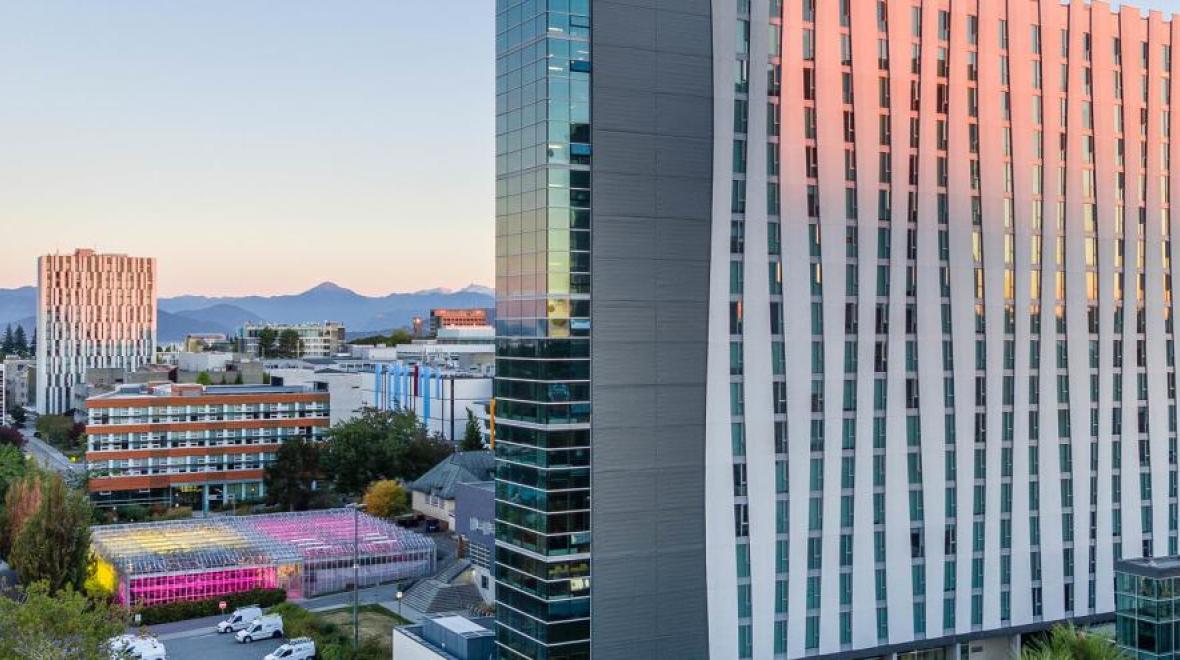
CAMPUS AS A LIVING LAB
A collaborative framework for faculty, staff, students and partners to address urgent global sustainability challenges.
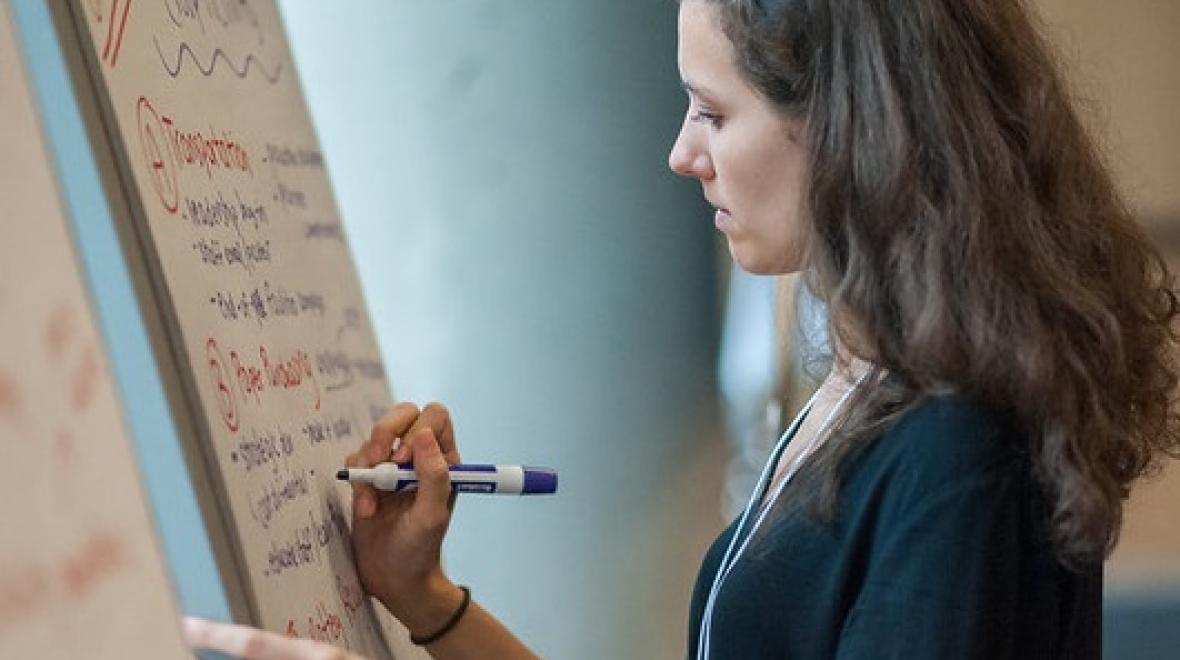
Find a Researcher
With over 400 faculty investigating sustainability-related topics at UBC, it can be hard to know where to start. We’ve curated a list of researchers with expertise across a wide range of disciplines.
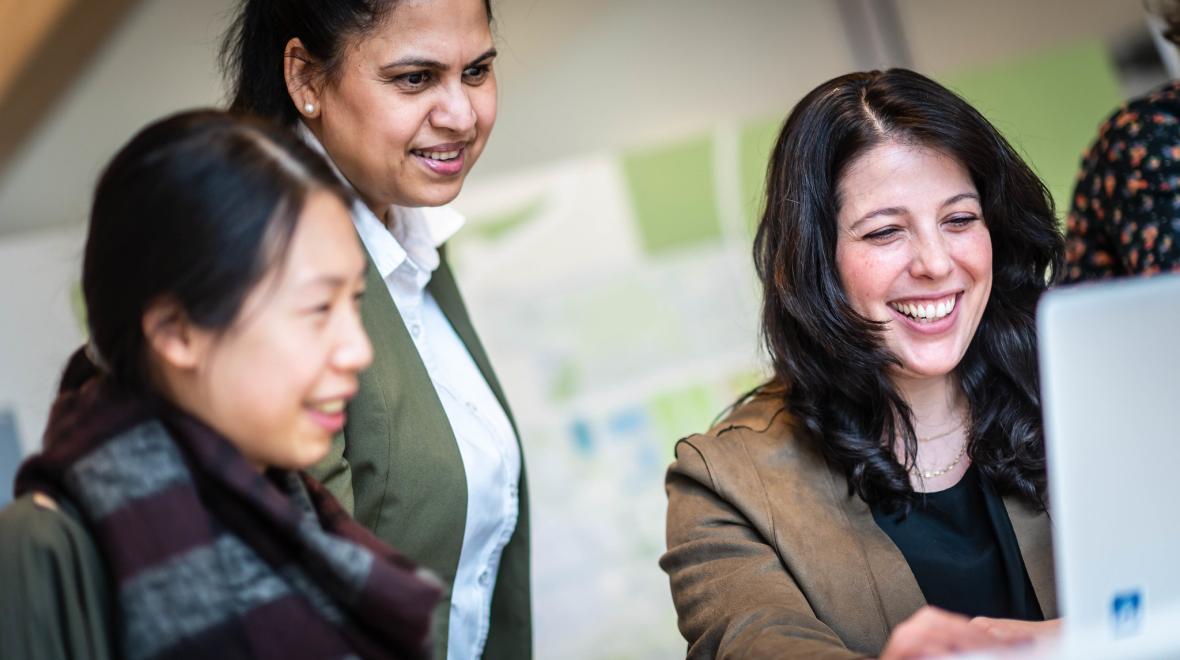
Research Groups
UBC operates multiple centres of excellence and research groups in order to address complex issues at different scales, and respond to critical community needs. We curate research groups to help you find them.
We deliver UBC’s Annual Sustainability Report, coordinate evaluation of UBC’s Climate Emergency Response, and provide transparent performance data for teaching, learning, and research purposes.
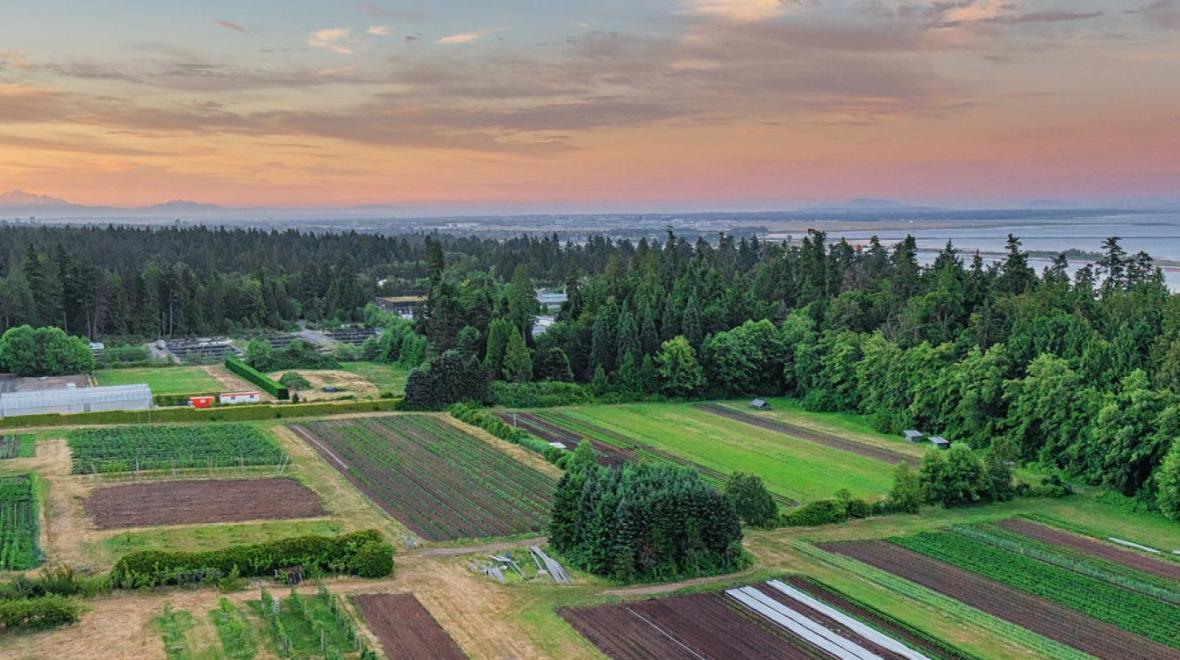
UBC’s Annual Sustainability Report
UBC continues to advance climate action and sustainability through teaching and learning, research, operations, and community. This annual report aims to cover the breadth, depth, and innovation of this remarkable work.
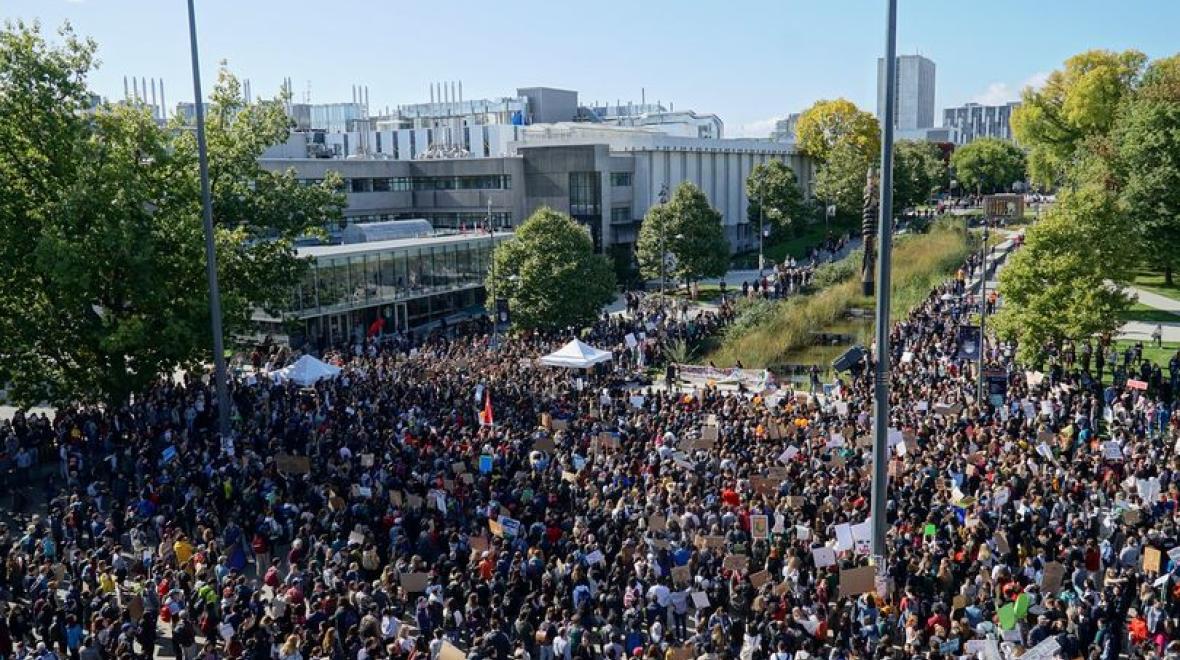
UBC’s Climate Emergency Response
The Sustainability Hub is responsible for convening and coordinating people across UBC to make progress on the Climate Emergency TaskForce report’s recommendations.
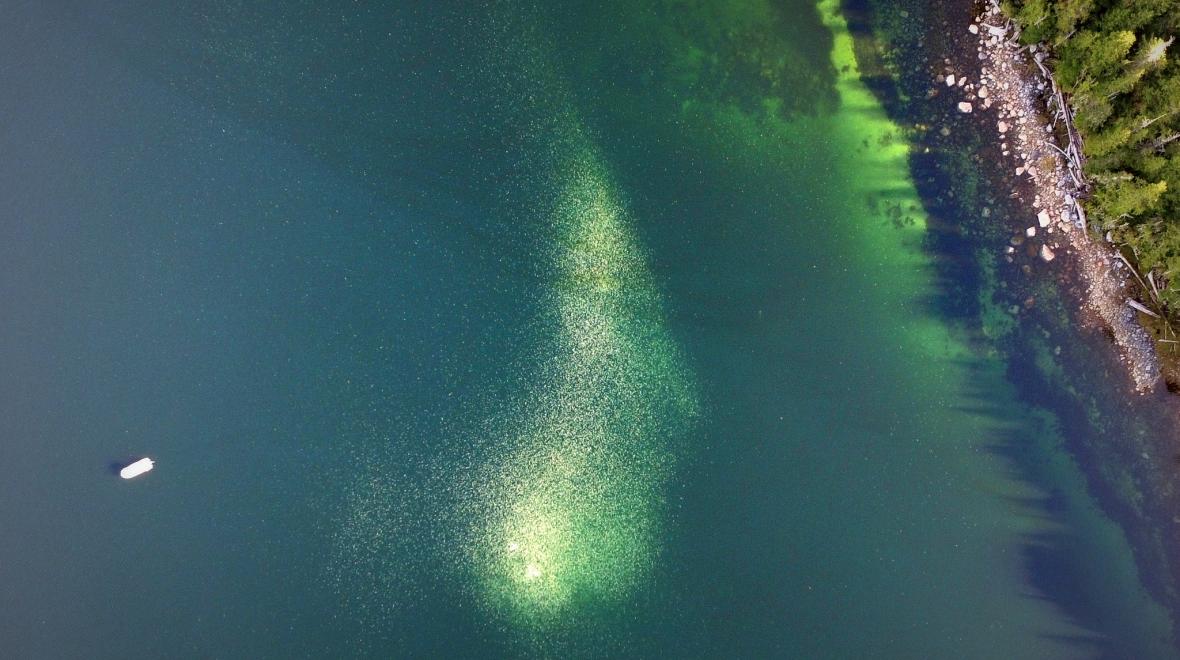
SUSTAINABILITY DASHBOARDS
Open access to UBC’s latest sustainability performance across our academic, operational, and community-focused areas of work. Explore visualizations, and download the latest open data for further research and learning.

SUSTAINABILITY DATA PORTAL
Examine the schema, build charts on the fly, and download the latest open data for further research and learning.
We host learning, knowledge sharing, and engagement events for the UBC community and beyond.
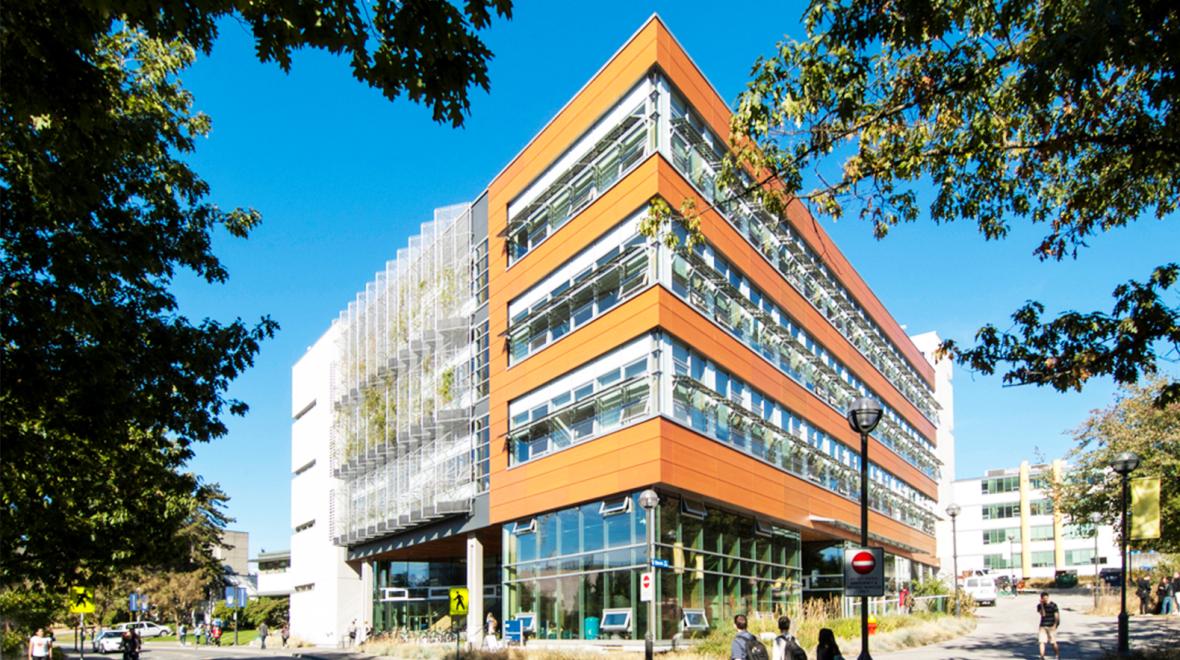
CENTRE FOR INTERACTIVE RESEARCH ON SUSTAINABILITY
The Sustainability Hub manages the CIRS building — a living laboratory, supporting research and the integration of education, engagement and learning opportunities for the community.
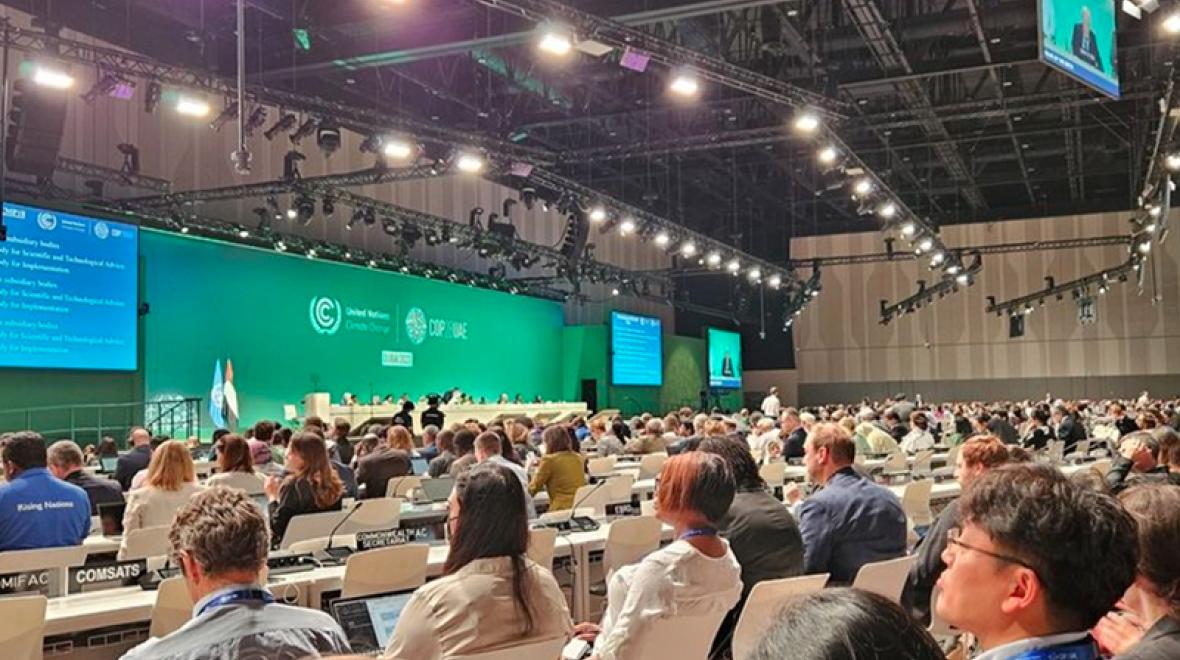
UBC’S COP DELEGATION
Join UBC’s delegation at COP to observe the international climate negotiation process, do primary research, build climate connections and partnerships, and share knowledge with a global audience. The application process is managed by the Sustainability Hub.
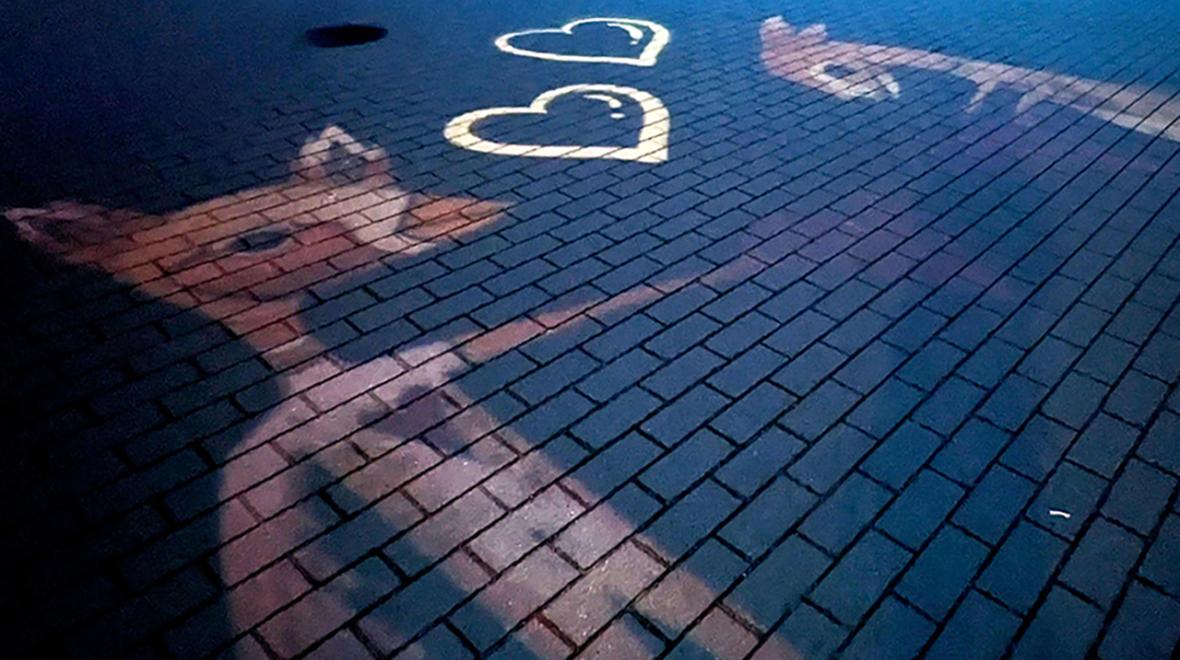
CLIMATE EMERGENCY WEEK
Climate Emergency week at UBC seeks to convene and energize communities of climate action at UBC. Join our events, workshops and activities, and take collective action for justice, people, and our planet.
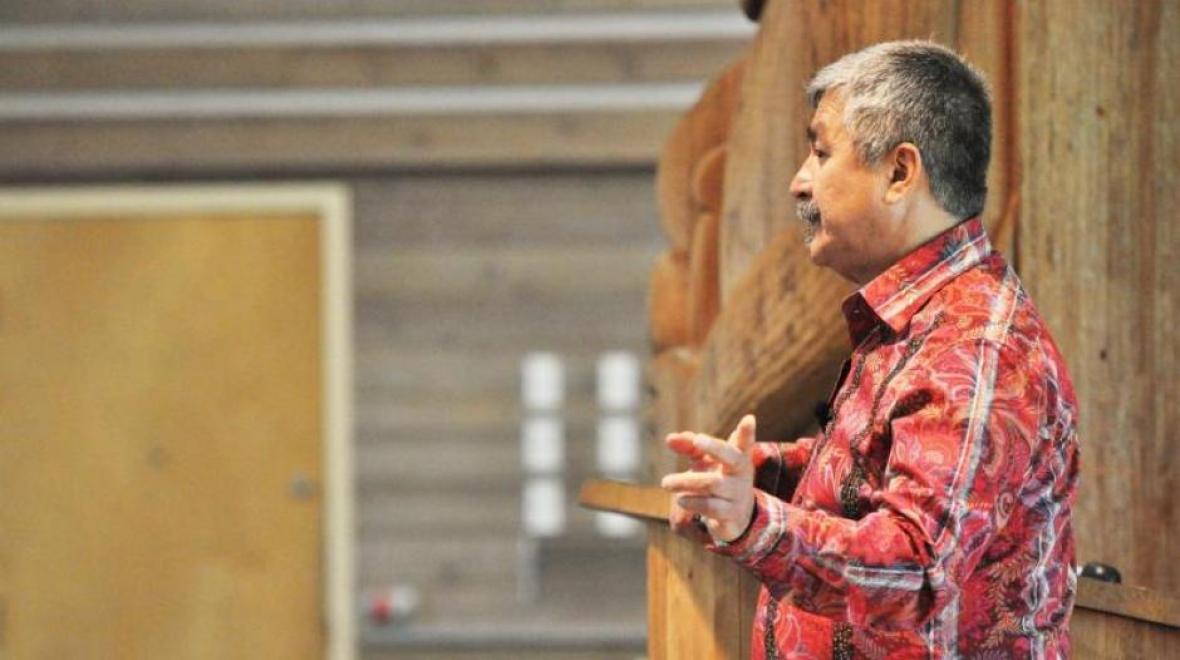
UBC READS SUSTAINABILITY
Part book club, part lecture series, and part opportunity to learn beyond the classroom. UBC Reads Sustainability is a forum for students, faculty, staff and community members across disciplines to discuss sustainability issues.
Meet the team
Our equitable, inclusive, and diverse team is committed to transformative change, protecting the environment, climate justice and to enriching the UBC campus landscape with a stronger Indigenous presence.
The Sustainability Hub is guided by an Advisory Committee consisting of executive leadership, deans, faculty, and students from across academic, operational, and community-focused areas of the university.
Leadership
Angelique Pilon, Acting Senior Director
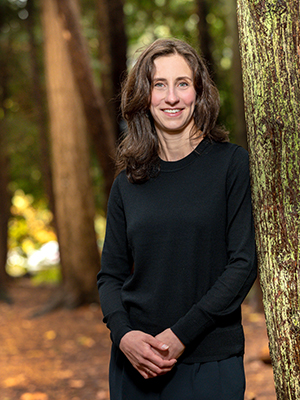
Angelique is serving as the Acting Senior Director for the Sustainability Hub. With a background in architecture and 14 years of experience at UBC, she brings a design approach and broad institutional knowledge to the creation and innovation of sustainability and climate action at the university.
Previously, Angelique was the Director of Urban Innovation Research, leading a portfolio of programs to catalyze and advance innovative research and interdisciplinary collaborations on and off-campus. In this role, she been actively involved in a number of strategic projects including the research and knowledge mobilization program for Brock Commons Tallwood House which led to the changes in mass timber building policy, and the development of the annual Campus as a Living Lab Fund Competition at both the Vancouver and Okanagan campuses.
Angelique holds a Master of Architecture from the University of British Columbia and a Bachelor of Science in Architecture from the University of Michigan, and has professional experience in firms in both Canada and the United States. She is a certified Project Management Professional and a LEED Accredited Professional with a specialization in Building Design and Construction. She is active in educational and professional organizations, including the Canada Green Building Council and the Council for Tall Buildings and Urban Habitats.
Tara Ivanochko, Academic Director
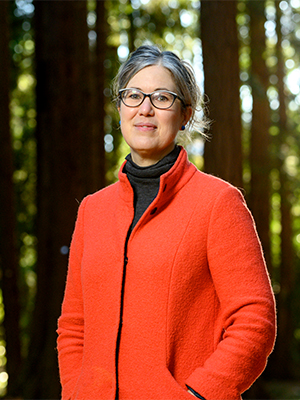
As Academic Director, Tara works in partnership with the Senior Director to provide vision, guidance, and oversight to the Hub. Tara received her PhD from the University of Edinburgh where she reconstructed changes in the intensity of the Indian Monsoon over the last 100,000 years and investigated the interconnections between equatorial and polar climate change.
Tara joined UBC’s Department of Earth, Ocean and Atmospheric Sciences (EOAS) as faculty in the Educational Leadership steam in 2009. In EOAS, Tara has since served as the Director of Environmental Science and as Associate Head Undergraduate Affairs. Tara has also engaged as a Sustainability Fellow with the USI to forward sustainability education at UBC, as a steering committee member for the UBC Centre for Sustainable Food Systems, and as a member of the UBC Interdisciplinary Education Task Force. She helped envision the UBC 20-year Sustainability Strategy and develop the Faculty of Science sustainability course offerings.
As an educator, Tara builds relationships between students and community organizations through collaborative research projects. These projects allow environmental science students to actively contribute to building sustainable communities.
Central Support Office
Jon Garner, Communications and Engagement Manager
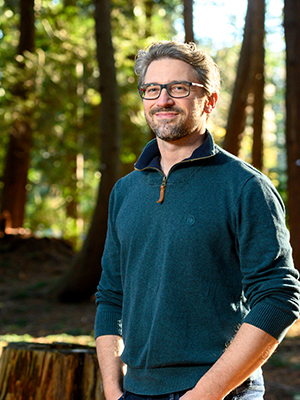
Jon is a Communications and Engagement Manager with experience in education, non-profit, private sector and government. He holds a Masters in Resource and Environmental Management from Simon Fraser University.
Equally at home behind a pop-up booth or keyboard, Jon has designed and implemented strategic communications plans that integrate media relations, advertising, websites, videos, social media, experiential events, and more.
Jon oversees the production of key publications including the Annual Sustainability Report, engagement activities such as Imagine day booths, and cross-campus engagement campaigns like UBC's Climate Emergency Week.
Natalie Hawryshkewich, Communications and Engagement Specialist
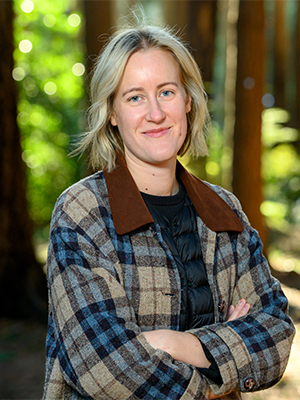
Natalie has a Bachelor of Design from Toronto Metropolitan University and a Master in Library and Information Studies from UBC.
Her experience in graphic design and communications spans publishing, academia, and the arts including work with the Association of Book Publishers of British Columbia, SFU Public Square, and the Roundhouse Community Arts and Recreation Centre.
Belén Garcia, Communications and Engagement Specialist
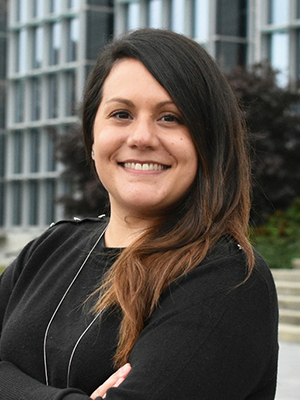
Belén is a Communications and Engagement Specialist with experience in digital marketing, social media, web management, and graphic design. She holds a Bachelor's in Advertising and Public Relations from the Complutense University of Madrid. Belén began her career as a communicator working for an advertising agency, a health and nutrition company and as a freelancer.
On her own time, Belén loves crafting and baking – you'll often find her trying a new recipe or sewing pattern! She launched her own eCommerce business in 2018 and is currently learning how to sew her own clothes.
Tim Herron, CIRS Events and Engagement Manager
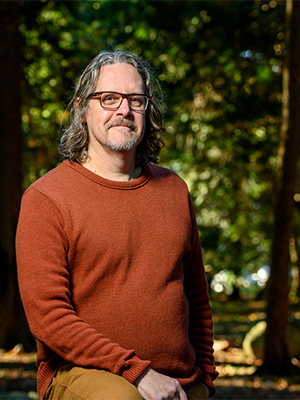
Tim has worked at UBC since 2012. He has had many careers from teaching kindergarten to carpentry to working backstage on large rock shows and raves.
Activist, lover of theatre and film.
Alejandra Urcelay, Data Manager
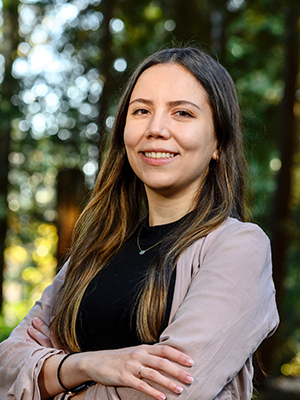
As the Data Manager for the Sustainability Hub, Alejandra supports reporting, analysis, and communication activities across the different groups within the unit. In addition, she collaborates with other partners including UBC's Campus & Community Planning, Wellbeing, and the UBC Okanagan Sustainability Office. She holds a Bachelor of Applied Science in Environmental Engineering from Universidad La Salle, Mexico and a Masters in Science in Resources, Environment and Sustainability from UBC.
Alejandra has experience working in environmental consulting services including environmental and social impact assessments, environmental monitoring, climate change impacts assessment, and spatial modelling projects.
Alejandra's current work focuses on analyzing institutional data to highlight trends in sustainability performance and in providing evidence-based insights and recommendations that inform future programs and activities.
Regional and International Engagement
Cait Murphy, Engagement Specialist, Regional & International Engagement
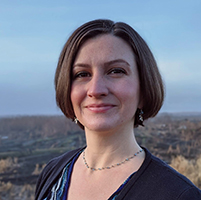
Cait is a settler of Irish and Dutch descent currently living in the territories of Tsawwassen Nation, Musqueam Nation, Stz'uminus Nation, Tsleil-Waututh Nation, Katzie Nation, Kwantlen Nation, and Stó꞉lō Nation. She has worked on environmental and social sustainability initiatives locally and abroad and has a keen interest in climate change and methods to motivate sustainable action. Previously, she led BC-based programs on climate change adaptation and resilience, engaged local government employees in sustainable behaviour-change in the San Francisco Bay Area and coordinated communications for an environmental charity. Cait holds a MA in Disasters, Climate Change Adaptation and Development from King's College London and a BSc in Global Resource Systems from UBC. She is a big fan of Halloween, graphic novels, and making new connections.
Teaching, Learning, and Student Engagement
Oliver Lane, Manager, Teaching and Learning
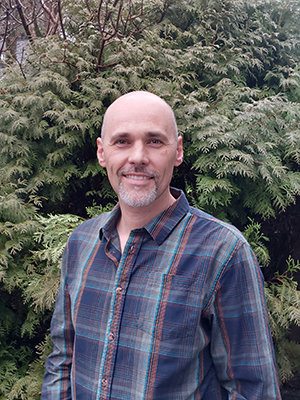
As the Teaching and Learning Manager, Oliver is responsible for developing, implementing and leading a range of programs and activities to support faculty members who teach sustainability and climate related courses and programs at UBC. These include the Sustainability Fellows Program, the Interdisciplinary Education Grants and the Climate Education Grants.
A UBC Graduate with a Masters degree in Sustainability, Oliver brings 20 years of diverse experience in environmental education, program management, poverty reduction work and non-profit organizational leadership. Before moving to Canada in 2008, Oliver obtained university degrees in Buenos Aires, Argentina, in Business Economics and Non-profit Organization Management.
Kshamta Hunter, Manager of Transformative Learning & Student Engagement
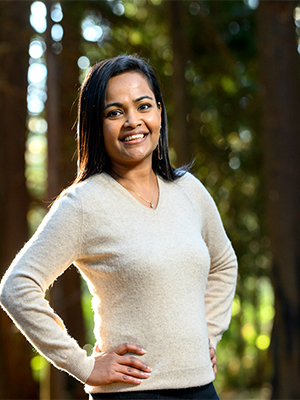
Kshamta Hunter brings over a decade of experience in sustainability learning and teaching, curriculum design and program management. She holds a PhD in sustainability curriculum and pedagogy, and teaches in the UBC’s Faculty of Education. Kshamta’s research explores the intersections of sustainability learning and leadership, using Transformative Learning and social innovation frameworks.
As the Manager of Transformative Learning & Student Engagement with the UBC Sustainability Hub, Kshamta develops and implements transformative, sustainability-focused learning and leadership opportunities for students, while developing creative and innovative approaches to new programming and curriculum through her research projects.
She is an Associate Editor for the International Journal of Sustainability in Higher Education, the co-chair of publications and scholarly works for the Canadian Association for Curriculum Studies and member of the editorial advisory board for the Journal of the Canadian Association for Curriculum Studies.
Karen Taylor, Manager, Sustainability Scholars Program
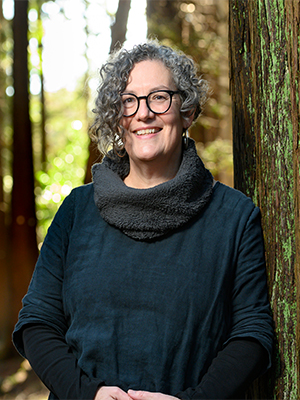
Karen manages the Sustainability Scholars Program, a paid internship program for UBC graduate students to work on applied sustainability-related research projects for organizations throughout the lower mainland, Vancouver Island, and the B.C. Interior.
A UBC graduate with a BA in English and an MA in Children’s Literature, Karen has an extensive and varied background in program management, project management, marketing, advertising production, academic writing, research, and editing.
Carmen Wan, Program Specialist

Carmen is responsible for supporting program managers to administer programs that are focused on advancing sustainability and climate priorities across the academic landscape at UBC.
Carmen holds an MSc in Sustainability from UBC, as well as a BSc in Environmental Science from the University of Nottingham. Prior to pursuing her MSc, Carmen spent over 5 years of experience as a sustainability officer in both a Malaysian airline company and a Singaporean agribusiness firm.
UBC Climate Emergency
Michelle Hak Hepburn, Project Specialist

Michelle supports the Sustainability Hub’s work to coordinate and convene climate actions across campus through engagement events like Climate Emergency Week and the Climate Justice Speaker Series. She also supports key climate partnerships, including the Interdepartmental Climate Committee (IDCC) and the CLimate Equity Action and Resilience (CLEAR) Initiative.
Michelle brings a breadth of environmental justice experience from her previous nonprofit and consultancy work in Canada and Peru. She holds an MA and PhD in Anthropology from UBC. Her research explores the local power dynamics in ecological decision-making and the lived experience of environmental policies – specifically about black bears (wildlife policies) in Ontario for her MA and the complexities of tropical deforestation and restoration in the Peruvian Amazon for her PhD. Michelle loves coffee and forest walks – and she’s always up for a good bear story.
Urban Innovation Research
Anthony An, Campus as a Living Lab Research Manager, Urban Innovation Research

Anthony is the Campus as a Living Lab (CLL) Research Manager at the UBC Sustainability Hub, contributing to diverse initiatives, programs, and projects that leverage university infrastructure for research, learning and knowledge transfer.
Anthony holds a Ph.D. and MASc in Mechanical Engineering from UBC and he is a registered professional engineer. Prior to joining the hub, he managed a UBC industry partnership program, driving strategy, execution, and stakeholder relationships to foster technological innovations on sustainability. Anthony's background includes roles as a senior engineer and project manager at FPInnovations, where the team successfully delivered several key smart manufacturing R&D projects in forestry.
Anthony is a passionate sports enthusiast and a firm believer of lifelong learning, staying curious and embracing challenges in work and life.
